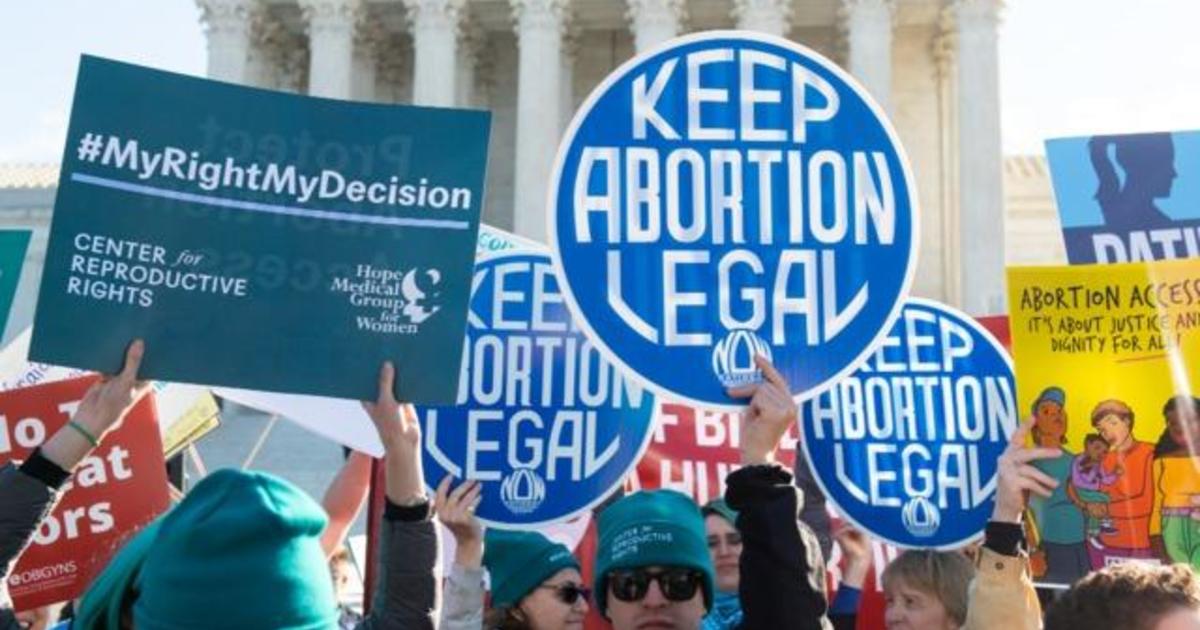In the first presidential debate, former Vice President Joe Biden told voters that Roe v. Wade was “on the ballot” this election — a claim President Trump disputed, despite campaigning on an anti-abortion rights platform. But in two states, abortion is on the ballot in a literal way: ballot measures.
Voters in Colorado and Louisiana will decide on ballot measures that promise to shape the future of abortion access in their respective states, both in the short- and long-term. Those efforts represent what many experts say is the future of abortion rights in America: a state-by-state battle over the procedure as the fate of Roe v. Wade becomes less certain under a conservative Supreme Court. The 1973 landmark ruling required every state to legalize abortion in at least the early months of pregnancy, but if the court decides to reverse the decision — which could happen as soon as next term — states would be free to prohibit the procedure entirely.
“States are trying to position themselves for whatever comes next after Roe,” said Mary Ziegler, a professor at the Florida State University College of Law and the author of “Abortion and the Law in America: Roe v. Wade to the Present.” “Everyone knows that Roe is not long for this world.”
In Colorado, voters on Tuesday will consider Proposition 115, a ballot measure that would prohibit abortion after 22 weeks of pregnancy. The proposal offers only one exception: if an abortion is “immediately required to save the life of the pregnant woman when her life is physically threatened,” according to the text of the proposition. The ban doesn’t offer exceptions for victims of rape or incest, or in situations of severe fetal abnormalities, conditions that typically aren’t detectable until later in a pregnancy.
Currently, Colorado is one of seven states without a gestational limit on abortion, allowing access to the procedure later in pregnancy in the very limited circumstances in which it’s federally allowed. Terminations after about 24 weeks of pregnancy are generally only legally allowed to happen in cases of severe fetal abnormalities, such as when the fetus is no longer viable, or to save the life of the patient.
The vast majority of pregnancy terminations happen early in pregnancy, and only 1.3% of abortions happened at or after 21 weeks of pregnancy in 2016, the most recent year for which data is available, according to the Centers for Disease Control and Prevention.
Because of its laws, Colorado has become a haven for patients seeking the procedure later in pregnancy; if the ballot measure is successful, the implications would stretch far beyond the state’s borders. Last year, 11% of the abortions performed in Colorado were for patients from 30 different states, according to the state’s Department of Health. Only six other states and Washington, D.C. have similarly broad abortion laws: Alaska, New Hampshire, New Jersey, New Mexico, Oregon, and Vermont.
That’s a group that Erin Behrens, the measure’s sponsor, is hoping her state will leave. In an interview with Denver radio station KHOW, the millennial anti-abortion rights activist called Colorado the “late-term abortion capitol of the United States.”
“Over the past couple of years it has been very concerning to me — I am learning about Colorado’s laws — and lack thereof — around abortion,” Behrens said. “And so I have been working to create awareness that Colorado is one of the worst states in the entire country — it’s one of the worst places in the entire world — for late-term abortion.”
Recent polling shows voters narrowly disapprove of the ban. And opponents of Proposition 115 have far outraised its supporters, according to data compiled by Ballotpedia. Supporters of Colorado’s proposed 22-week abortion ban have raised a little more than $500,000 while its opponents have raised nearly $7 million.
In Louisiana, voters will consider a ballot measure that’s more hypothetical: an amendment to the state constitution opposing abortion. If passed, the measure, Louisiana Amendment 1, the “No Right to Abortion in Constitution Amendment,” would add one line to the state’s Declaration of Rights: “To protect human life, nothing in this constitution shall be construed to secure or protect a right to abortion or require the funding of abortion.”
Given that the state has passed nearly 100 anti-abortion restrictions since Roe v. Wade, including a law that would automatically prohibit abortion in the event that Roe is overturned, experts believe the measure is more political than practical.
“No one is realistically expecting anyone in the Louisiana Supreme Court to find a right to abortion in the state’s constitution,” Ziegler said. “But it is a way for Republicans to signal how they feel about things and get voters excited.”
Louisiana’s measure — referred by its supporters as the “Love Life” amendment — is one in anticipation of a post-Roe world. If approved, the amendment won’t change how patients access abortion in the state for now, but instead would set up an obstacle for abortion rights groups in the event Roe is overturned and states decide for themselves whether to legalize the procedure.
In 2018, ballot measures in Alabama and West Virginia established similar anti-abortion constitutional amendments, joining Tennessee, where voters approved one in 2014. In 10 states, including California, Massachusetts and New York, voters have gone the other direction, approving measures that establish a right to an abortion, regardless of Roe.
“By passing the Love Life Amendment, we will ensure that no judge can ever recognize a right to abortion,” said Louisiana state lawmaker Katrina Jackson in an advertisement supporting the measure. Jackson, who sponsored the amendment, was also the author of the Louisiana abortion restriction the Supreme Court struck down earlier this year.
“We will ensure that unborn babies all across this state are protected on the day that Roe v. Wade is overturned,” Jackson said.
